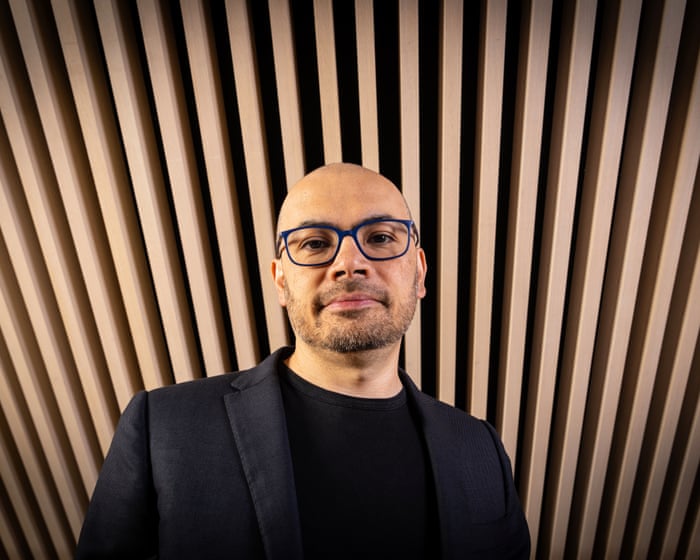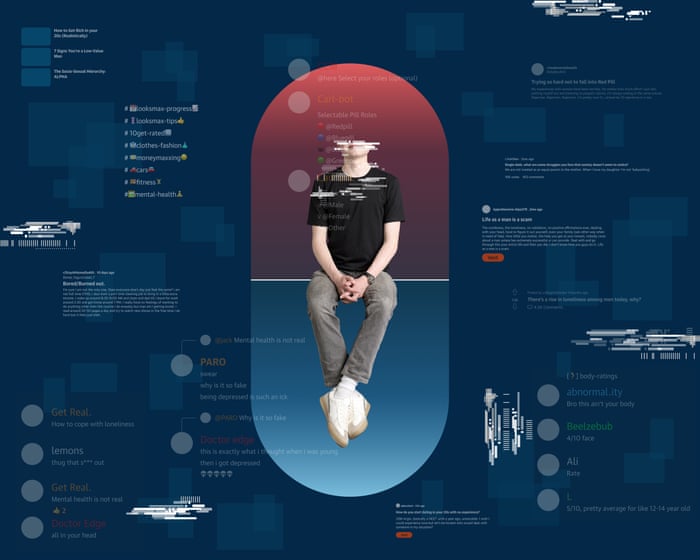When you picture a Nobel Prize winner, Demis Hassabis probably isn’t what comes to mind. At 49, he’s relatively young, mixed-race (with a Greek-Cypriot father and Chinese-Singaporean mother), and state-educated. While he didn’t look out of place receiving his medal from the King of Sweden last December among a sea of gray-haired laureates, he admits the experience felt “very surreal.”
“I’m terrible at enjoying the moment,” he says. “I’ve won awards before, but I’m always thinking, ‘What’s next?’ This one was different—it’s the kind of thing you dream about as a kid.”
Then again, maybe not everyone dreams of a Nobel Prize, but Hassabis certainly did. Recognized as exceptional from an early age—he was a chess prodigy by four—he’s now arguably one of the most influential figures in the world. As the head of Google DeepMind, the tech giant’s AI division, he’s at the forefront of what could be the most transformative technological revolution of our time.
This puts him in a unique position: both championing AI’s potential and defending its risks. The Nobel Prize in chemistry, awarded for DeepMind’s AlphaFold breakthrough—which deciphered the complex structures of proteins—showcases AI’s benefits. Yet concerns about AI’s rapid advancement, fueled in part by Google, continue to grow.
Being an AI spokesperson wasn’t part of Hassabis’s original plan. “If it were up to me, we’d have kept AI in the lab longer, focusing on breakthroughs like AlphaFold—maybe even curing cancer,” he says. “But there are advantages to how things have unfolded. It’s good that people can experiment with AI firsthand, helping society adapt. Governments need to discuss it, and I feel a responsibility to speak up, especially about the scientific approach—addressing the unknowns and making them less uncertain.”
In person, Hassabis balances approachability with polished professionalism. Dressed entirely in black and wearing two watches (one smart, one classic), he gives off an air of someone always on the move. We meet in his office at DeepMind’s London headquarters, where signed chessboards from legends like Garry Kasparov and Magnus Carlsen line the walls. He still plays—a board sits ready nearby.
Chess shaped his way of thinking. Competing from ages four to 13 in England’s junior teams, he says, “It trains your brain—strategic thinking, handling pressure—it stays with you.”
On paper, little else in his background hinted at this path. His family leans artistic: his retired father recently composed a musical staged in North London, and his sister is a composer. “I’m the odd one out,” he jokes. Growing up in North London’s state schools (with some homeschooling), he wasn’t wealthy but had enough.
An outsider at school, he always knew his direction. His childhood heroes were pioneers like Alan Turing and Richard Feynman. He spent his chess winnings on early computers—a Sinclair ZX Spectrum and a Commodore.Here’s the rewritten text in fluent, natural English while preserving the original meaning:
—
I got into computers with the Amiga and learned to code. “Back in the late 80s, not many people were interested in computers. There was a small group of us who’d mess around making games and other things—that eventually became my career after chess.”
In the 90s, AI was already part of the gaming industry. At 17, I programmed the popular game Theme Park, where players built virtual amusement parks. “The game responded to how you played,” I explain. Place a food stall too close to the rollercoaster exit, and your virtual visitors would start vomiting.
I once told Elon Musk, “What if AI is what goes wrong? Then being on Mars wouldn’t save you.”
After studying computer science at Cambridge and earning a neuroscience PhD at UCL, I co-founded DeepMind in 2010 with Shane Legg, another neuroscientist, and Mustafa Suleyman, an old school friend of my younger brother. Our goal was simple: “Solve intelligence, then use it to solve everything else.”
DeepMind quickly gained Silicon Valley’s attention. In 2014, we demonstrated an AI that taught itself to master Atari games like Breakout from scratch. Tech giants like Peter Thiel (an early investor), Google, Facebook, and Elon Musk took notice. I first met Musk in 2012 during lunch at SpaceX’s California factory. He told me his priority was colonizing Mars as a “backup planet” in case something went wrong on Earth. “I don’t think he’d considered AI much back then,” I recall. I pointed out the flaw: “What if AI is what goes wrong? Being on Mars wouldn’t help—if we can get there, AI could easily follow through our communication systems.” He paused for a minute, then admitted, “Hmm, that’s probably true.” Soon after, Musk also invested in DeepMind.
In 2014, Google acquired DeepMind for £400 million (leading Musk and Thiel to back rival OpenAI instead). We chose Google not just for funding and resources—founders Larry Page and Sergey Brin were fellow computer scientists who “saw Google as fundamentally an AI company.” I also used products like Gmail and Maps. “Plus, Google’s mission to organize the world’s information just felt like a cool goal.”
From my office window, I can see Google’s nearly finished new UK headquarters, where DeepMind will relocate next year. Google’s heavy investment in Britain is largely because I insisted on staying in London. “Early backers told us to move to San Francisco, but I wanted to prove we could succeed here,” I say. “I knew there was untapped talent, and given AI’s global importance, it couldn’t just be confined to Silicon Valley. I still believe that.”
In 2016, DeepMind made headlines again when its AI beat a world champion at Go—a far more complex game than chess. The AlphaFold breakthrough in predicting protein structures was another milestone: we’ve now mapped over 200 million proteins and shared the data publicly.
But the AI landscape changed dramatically in 2020 with the release of… [text continues]
—
(Note: The last sentence is intentionally left open as the original text was cut off.)OpenAI’s ChatGPT-3 captured the public’s imagination with its remarkable ability to handle everything from strategic planning to writing poetry. Its success caught big tech companies by surprise—especially Google. “They went all-in on scaling, almost betting the house, which is impressive. Maybe that’s what you have to do as a startup,” says Hassabis. “All the leading labs had similar systems, but we could see the flaws, like occasional hallucinations. I don’t think anyone, including OpenAI, fully anticipated how many amazing use cases would emerge or how much value people would find in it. It’s a lesson in how being too close to your own technology can blind you to its broader potential.”
Hassabis predicts that within the next five to ten years—possibly sooner—we’ll have AI that can reasonably be called artificial general intelligence (AGI), matching human cognitive abilities. “It might not happen in a single moment but gradually,” he says.
The race is now in full swing. DeepMind has become what Hassabis calls “the engine room of Google,” with AI integrated into every part of its business—AI-powered search summaries, the smart assistant Gemini (Google’s answer to ChatGPT), image generators with sound effects, smart glasses, translation tools, and shopping assistants. Whether the public truly wants this AI-driven world remains to be seen.
Competitors aren’t standing still. Meta, Amazon, Apple, Microsoft, and others are investing heavily and poaching top talent. Mark Zuckerberg is reportedly offering $100 million salaries to leading researchers. Mustafa Suleyman, who left DeepMind in 2019 and now heads Microsoft AI, recently hired over 20 DeepMind engineers. He hesitates to call Hassabis a rival: “We do very different things. He’s more focused on commercial applications, while we’re still pushing frontier research.”
The ultimate goal is AGI—the point where AI equals human intelligence. Hassabis envisions a future of “radical abundance,” where AI drives breakthroughs in medicine, superconductors, nuclear fusion, and materials science. “If we manage it responsibly, we could see unprecedented productivity and prosperity,” he says. “The challenge is ensuring fair distribution—that’s more political than technical. If we get it right, we could move beyond zero-sum thinking and even reach for the stars.”
But there are serious concerns. Deepfakes, job displacement, massive energy consumption, copyright issues, and the existential risk of AI deciding humans are expendable all loom large. One pressing issue is the staggering water and electricity demands of future AI data centers—especially amid droughts and climate crises. By the time AI solves nuclear fusion, will there still be a habitable planet?
“There are many ways to address these challenges,” Hassabis acknowledges, but the path forward remains uncertain.”True, AI systems will require significant energy,” Hassabis responds. “But the benefits we’ll gain—even just in climate solutions from these models—will far outweigh the energy costs.”
There’s also concern that “radical abundance” could be a euphemism for mass unemployment, as AI increasingly replaces human jobs. If we reach a point where we “never need to work again,” as some predict, doesn’t that mean surrendering economic power to those who control AI? “That’s one of the biggest challenges we’ll need to solve,” he admits. “If we achieve radical abundance and distribute it fairly, what comes next?”
Hassabis has two teenage sons (his wife, an Italian molecular biologist). What future does he imagine for them? “It’s similar to when I was growing up, with home computers emerging—only this will be far bigger. But embracing new technology is key. Those who master these tools will have real power.”
Still, there’s room for non-experts: “We’ll need philosophers and economists to rethink purpose and meaning in this new world.” He notes that many human pursuits—sports, meditation, art—aren’t about utility. “Society will lean even more into these areas, with the time and resources to explore them.”
Hassabis himself has little free time, juggling DeepMind, his drug-discovery company Isomorphic Labs, and public engagements. “I work seven days a week,” he says. “My downtime is playing competitive board games with my kids—I don’t let them win.”
A Liverpool FC season ticket holder, he attends six or seven matches a year. He still plays chess online (“mental exercise”) and is a skilled poker player—after winning a major science prize, he celebrated with a game alongside Magnus Carlsen and poker champions. “In another life, I might’ve been a pro gamer.”
So, is he worried about the future? “I’m cautiously optimistic. Human ingenuity will prevail—we’re infinitely adaptable. Our brains evolved for hunter-gatherer life, yet here we are. This shift will dwarf the Industrial Revolution in scale and speed.” He acknowledges that era wasn’t smooth for everyone, “but we wouldn’t undo it. We should minimize disruption, but change is coming—hopefully for the better.”


